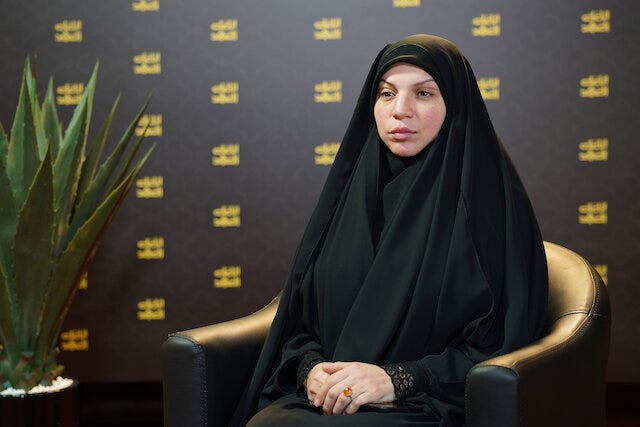Carrying the Torch: The Daughter of Martyr Sayyid Fouad Shukr on Legacy, Loss, and Loyalty
In an exclusive interview, Khadijah Shukr reflects on her father’s life, the meaning of martyrdom, and the enduring spirit of the Resistance.
Khadijah Shukr, daughter of the late Martyr Sayyid Fouad Shukr—known as Sayyid Mohsen—opens a window into the private and public life of one of Hezbollah’s most influential yet discreet commanders. Her words, shaped by both personal loss and deep ideological conviction, offer a unique perspective on the legacy of her father and the path of the Resistance.
Khadijah describes her father’s character as built on three pillars: a lifelong devotion to the Quran and the mosque, a deep connection to the path of Imam Hussain and Ashura, and unwavering loyalty to the concept of Wilayah and the leadership of Imam Khamenei. She recalls how, even before Hezbollah existed, her father was already organising resistance against Israeli advances, inspired by the teachings of Imam Khomeini. “Our mosques are our trenches,” he would say, urging others to see the mosque as the foundation of both faith and resistance.
She recounts the pivotal Battle of Khalde, where her father, vastly outnumbered and outgunned, led a small group to victory against Israeli forces. When asked by a journalist which resistance group he belonged to, he simply replied, “We are followers of Khomeini.” For Khadijah, this moment encapsulated her father’s motivation: not just to defend land, but to fulfill a spiritual and ideological duty.
Khadijah’s memories are not just of a commander, but of a father often absent, away on missions in Lebanon, Bosnia, and later Syria. She remembers the long periods without contact, the uncertainty, and the quiet strength of her mother, who would tell her children that their only duty was to pray for their father’s safety or martyrdom. “In either case, that is a victory,” she recalls Sayyid Hassan Nasrallah saying.
After her father’s martyrdom, Khadijah describes a sense of peace, rooted in the values her father instilled. “He always asked us to pray for his martyrdom,” she says, recalling how he would urge his family to pray for this outcome during special nights and supplications. When the news finally came, she found solace in the teachings of Lady Zaynab: “I saw nothing but beauty.” The pain of loss was tempered by the belief that martyrdom is the most beautiful form of death on the path of God.
Khadijah also speaks of the close relationship between her father and Sayyid Hassan Nasrallah, both as comrades and as friends. She remembers Sayyid Hassan as a second father figure, whose presence after her father’s death helped the family endure their grief. The bond between the two men, she says, was both organisational and deeply personal, marked by mutual respect and affection.
Her reflections extend to the family’s relationship with Imam Khamenei, whom she describes as a compassionate and fatherly figure. From childhood visits to the Leader, Khadijah recalls the sense of being under his protective cloak—a feeling that persisted even after her father’s death. Imam Khamenei’s words and gestures, she says, affirmed her father’s unique place within the Resistance and the broader movement.
Looking to the future, Khadijah remains steadfast in her commitment to the path her father walked. She echoes the words of Sayyid Hassan: “We will defend Palestine, even if all of us are killed.” For her, strengthening the Resistance means both practical development—technology, equipment, and readiness—and unwavering ideological faith rooted in the Quran and the spirit of Ashura.
In the face of loss, Khadijah Shukr’s message is clear: the Resistance is not defined by any one individual, but by a collective spirit and a promise of victory. The legacy of her father, and of all the martyrs, lives on in the continued struggle and the unbroken will of those who remain.
A short documentary about the jihadi life of the martyred commander Sayyid Fouad Ali Shukr, with special scenes of the martyr Sayyid Fouad Shukr with Imam Khamenei.


